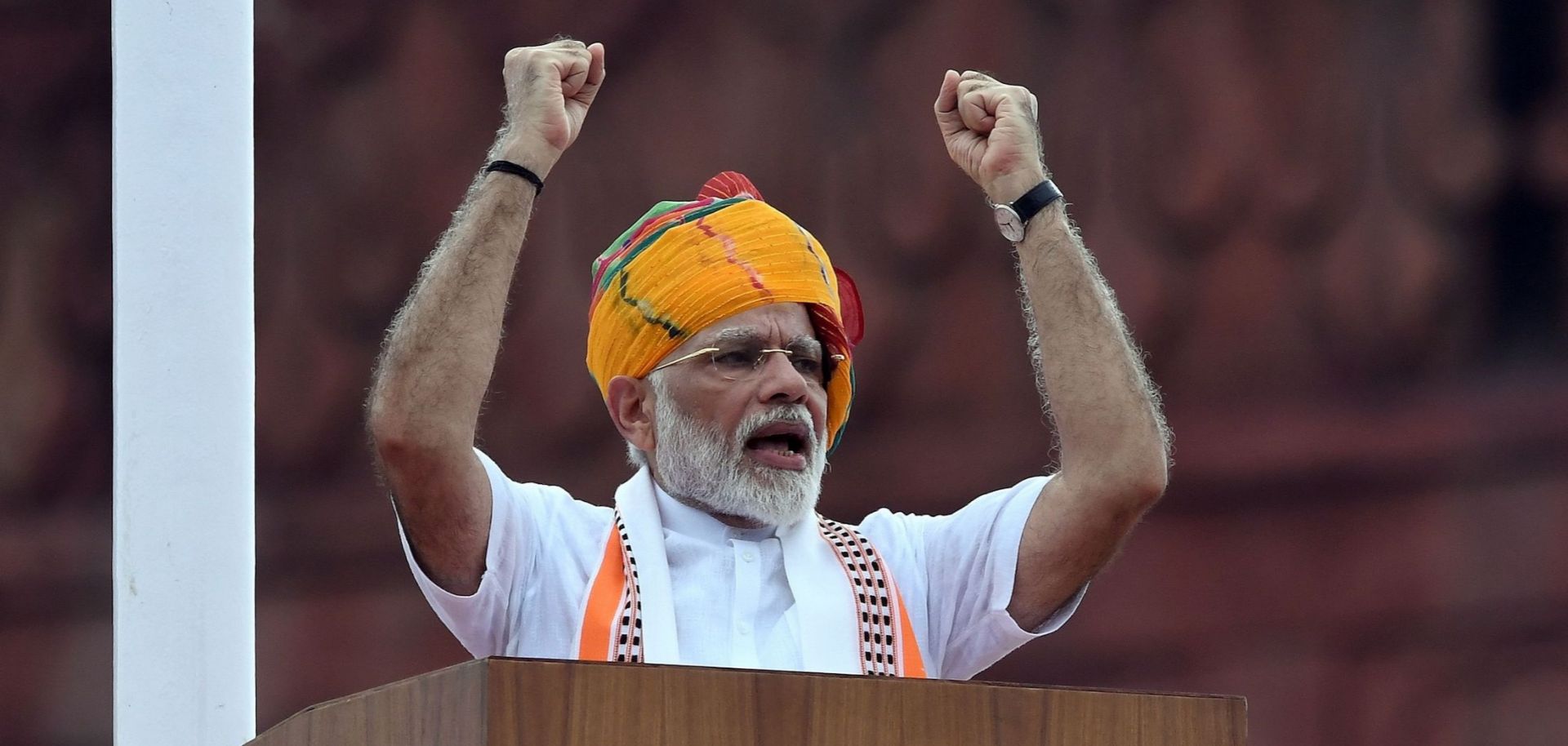COLUMNS
When Populist Nationalists Tempt Geopolitical Fate

Aug 15, 2019 | 09:00 GMT

Indian Prime Minister Narendra Modi delivers a speech to the nation during a ceremony to celebrate the country's 73rd Independence Day, which marks the of the end of British colonial rule, at New Delhi's Red Fort on Aug. 15, 2019. Populist-nationalists get away with a lot -- despite the seeming constraints to engaging in action that could have big consequences down the road.
(PRAKASH SINGH/AFP/Getty Images)
Highlights
- U.S. President Donald Trump, Indian Prime Minister Narendra Modi and British Prime Minister Boris Johnson have been providing ample evidence as to why the campaign promises and election manifestos of latter-day populist-nationalists should not be easily dismissed as mere rhetoric that will be tempered once in office.
- In claiming to be the vox populi for a narrow segment of the population, populist-nationalists will claim an outsize political mandate that makes them far more willing to defy traditional constraints.
- But when populist-nationalists rely on tribalism to strengthen a nation in their own image, they may also end up fundamentally threatening the geopolitical foundation of their states.
Subscribe Now
SubscribeAlready have an account?
